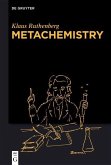Often, the history and philosophy of science are presented as a series of triumphant successes. Atomism is frequently cited as a major success in chemistry. However, upon closer examination, we find aspects that challenge this simplistic view. Chemists do not actually work with atoms since they are unobservable. Yet, theoretical discussions consistently treat these unobservable entities as real. The field of chemistry, which studies the behavior of substances, continues to grapple with the age-old philosophical question: how can we obtain reliable knowledge about chemical species? This collection of classic and contemporary texts, authored by international experts in the history and philosophy of chemistry, focuses on the critical examination of atomism by Frantisek Wald (1861-1930), an outsider to the mainstream chemical community of his time. Wald advocated for the use of the phase notion as a theoretical basis and emphasized the importance of the preparation of any chemical sample. The studies presented in this collection primarily cover the latter part of the Long 19th century.
Bitte wählen Sie Ihr Anliegen aus.
Rechnungen
Retourenschein anfordern
Bestellstatus
Storno








